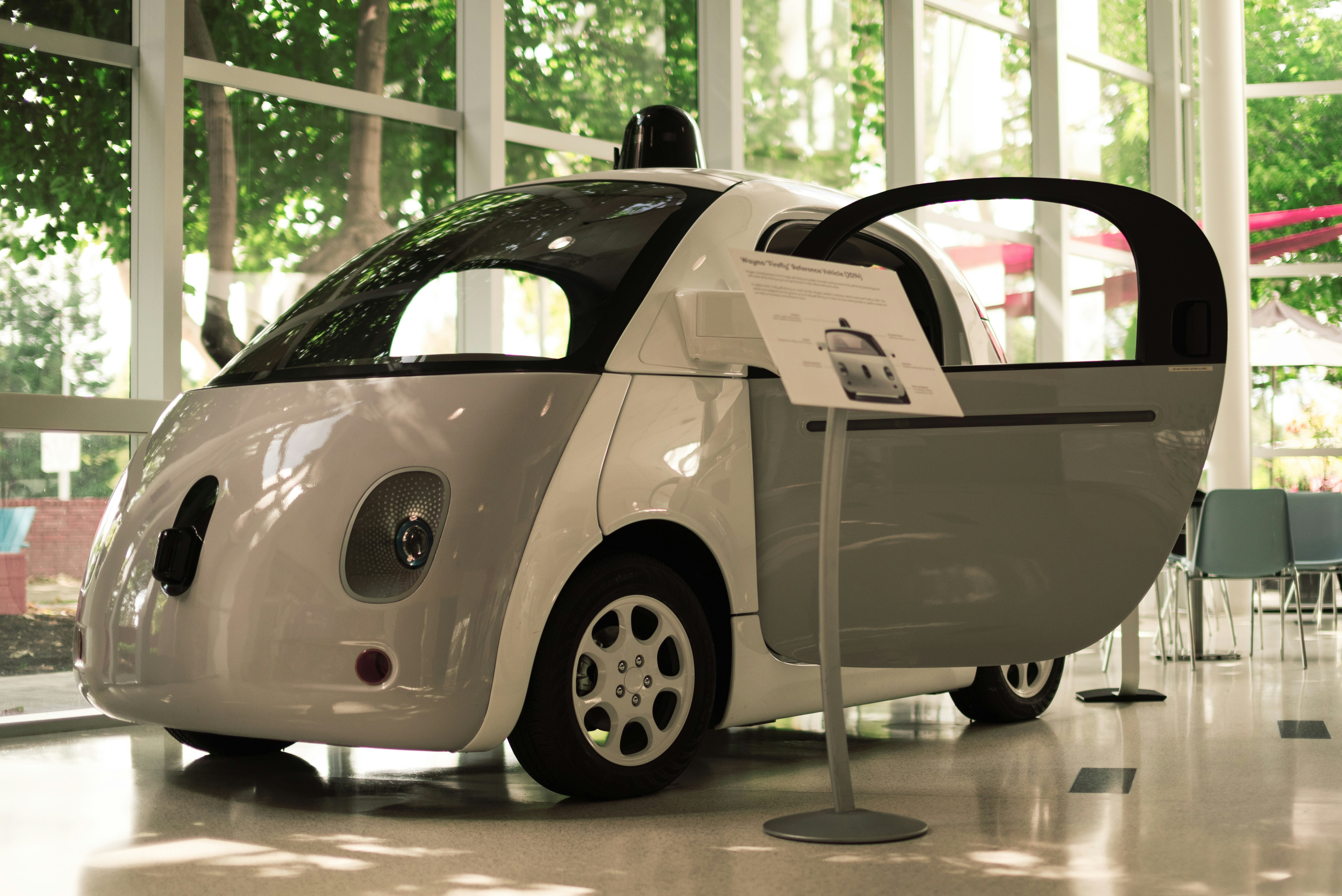From Fleet to Freedom: Autonomous EVs Unlock Nomadic Adventures
For many, the allure of a digital nomad lifestyle is undeniable. The freedom to work from exotic beaches, bustling cities, or scenic mountains has become a reality thanks to one powerful player: autonomous electric vehicles (EVs). As remote work becomes the norm, these innovative machines are enabling a new way of living, offering not just mobility, but an entire lifestyle revolution. In this article, we will explore how autonomous EVs are reshaping the travel experience for digital nomads, enhanced by robust 5G connectivity and technological integration. Buckle up as we dive into a world where work and play intertwine on the open road.
The Rise of Remote Work and Digital Nomadism
With the onset of the COVID-19 pandemic in 2020, businesses around the globe were thrust into the world of remote work. This transition wasn’t simply a temporary solution; it catalyzed a broad shift in how we perceive work-life balance. According to a survey by Buffer, around 97% of remote employees wish to continue working from anywhere for the rest of their careers. Enter the digital nomads—individuals who harness technology to become location-independent, seeking adventure and spontaneity while juggling their professional responsibilities.
For these modern-day explorers, traditional housing and the nine-to-five routine often feel constricting. The rise of autonomous EVs presents an escape route, liberating them from fixed locations and allowing them to blend work and exploration seamlessly. Imagine waking up to the serene sounds of nature, drinking coffee by a picturesque lake, and logging into a meeting—all from the comfort of your self-driving electric vehicle.
Autonomous EVs: Enabling Seamless Mobility
Autonomous EVs, equipped with cutting-edge technology, are not just vehicles; they are mobile living spaces. Companies like Tesla, Waymo, and Cruise are at the forefront of this revolution, tirelessly innovating to develop vehicles that can navigate without human input. The impact of this technology extends beyond the automobile industry, reshaping entire lifestyles.
The Allure of Flexibility and Freedom
One of the most exciting features of autonomous EVs is the inherent flexibility they provide. Digital nomads no longer have to confine themselves to specific locales or clunky RVs. With the potential to operate and schedule their driving around their needs, these seamless vehicles redefine what it means to travel. Whether commuting to an out-of-state conference or taking a spontaneous weekend trip to the mountains, an autonomous EV can manage the logistics, allowing users to focus on productivity, comfort, or leisure.
Enhanced Workspaces on Wheels
Moreover, the development of smart, tech-equipped EVs creates innovative workspace solutions. Many vehicles offer spacious interiors with comfortable seating, Wi-Fi connectivity, and even integrated workstations. Nomads can transform their vehicles into dynamic offices, utilizing apps to keep track of their schedules, or even joining virtual meetings while on the go. For instance, 5G technology ensures high-speed internet access, bridging the gap between a traditional office and the wild outdoors.
Integration of 5G Connectivity in EVs
As the digital nomad movement gains momentum, 5G connectivity becomes crucial in ensuring seamless experiences. Reliable internet access transforms the way nomads communicate, navigate, and even socialize. With fast internet speeds, remote workers can now partake in video conferences without buffering, stream crucial data, and collaborate with colleagues effortlessly.
The Impact on Autonomous Vehicle Operations
The connection between 5G and autonomous vehicles goes deeper than just convenient internet access. With enhanced data capabilities, autonomous EVs can communicate with one another and traffic signals, potentially leading to more efficient travel routes, reduced congestion, and increased safety on the road. As a result, digital nomads can drive through highways without worrying about navigating heavy traffic or getting lost—allowing them to focus on living life to the fullest.
For a detailed look at how 5G connectivity propels autonomous driving into the future, check out this insightful article.
Emphasizing the Digital Nomad's Environment
As digital nomads redefine conventional work culture, the impact on communities, economies, and even the environment cannot be overlooked. Autonomous EVs pave the way for greener transportation options, ultimately minimizing the carbon footprint associated with traditional vehicles. The ability to run on electricity enhances sustainability, while the remote work component of nomadism reduces the vast commuting patterns that have plagued urban centers.
The Industry's Shift Towards Eco-Friendly Solutions
The collaboration between autonomous driving and eco-consciousness extends further. Companies are adapting their fleets, creating infrastructure that supports electric vehicle charging stations and increasing the availability of sustainable public transportation options. In contrast, formal workplaces reimagine their norms, unleashing a wave of co-working spaces, pop-up cafes, and access points for digital nomads around urban landscapes.
Nomads can embrace sustainable lifestyles even while on the road, exploring eco-tourism and leveraging sustainable practices in their travels. For insights on how EVs are shaping eco-friendly tourism, check out this article here.
The Challenges of Living on the Road
While the idea of living a digital nomad lifestyle is alluring, it does come with its own hurdles. The unpredictability of road life—ranging from finding reliable charging stations to managing your workspace—presents a unique set of challenges. Moreover, mastering the balance between work and travel can feel overwhelming without the right tools or approaches.
Planning and Preparing for Life on the Move
Creating an efficient nomadic life entails meticulous planning. Digital nomads must ensure their vehicles are always charged, their workspaces are practical, and their internet connections are reliable. Though autonomous EVs alleviate many stressors associated with traditional travel, they don’t eliminate the need for strategic planning.
Adapting to the nomadic lifestyle also requires psychological adjustments. Livelihoods based around consistent environments may need rethinking, focusing on being adaptable to changing scenery and dynamic work conditions. This transition can be challenging but ultimately rewarding for adventurous types.
Emotional Wellbeing and Long-term Travel
The demand for autonomy and flexibility often pushes individuals to experience varying locales, cultures, and people. While the travel may stimulate personal growth, a sense of loneliness can arise from prolonged periods on the road. Autonomous EVs can help alleviate this emotional distance by offering features that foster connectivity and remind users of their relationships back home.
Notably, incorporating wellness practices into a nomadic lifestyle can ease anxiety. Eating healthily, exercising whenever possible, and integrating mindfulness routines can create a holistic approach to road life that nurtures emotional wellbeing. For in-depth exploration on the psychological implications of autonomous driving, read this article.
The Future of Autonomous EVs and Digital Nomadism
As we look ahead, the partnership between autonomous EVs and the digital nomad lifestyle is set to flourish even further. Rapid advancements in AI and technology will unlock capabilities that redefine our connections to the vehicles we drive and illuminate new pathways we’ve yet to imagine.
Autonomous EVs Shaping Smart Cities
Future urban planning will actively incorporate autonomous EV experiences, promoting intelligent infrastructure that caters to digital nomads. Smart cities will revolve around enhancing the EV experience, including eco-friendly charging stations, incentives for green travel, and communal spaces for remote workers to connect. A focus on sustainability, adaptability, and community will cement the role of EVs as cornerstones of our future society.
In conclusion, the confluence of remote work, autonomous EVs, and the digital nomad movement presents an unprecedented opportunity for exploration and innovation. Embracing this lifestyle offers individuals a voice in how we navigate our environments, elevating freedom and autonomy while reducing our carbon footprint. Prepare for a remarkable journey with endless possibilities that promises to reshape the way we live, work, and experience our world.
Final Thoughts
Transitioning into a digital nomad lifestyle isn't merely about the destination; it's about how we redefine work and personal freedom. As autonomous EVs empower us to break free from conventional boundaries, the road ahead is full of potential. Equipped with innovative technology, flexible spaces, and an eco-conscious mindset, the future of travel is not just bright—it’s boundless. Are you ready to embrace the adventure of a lifetime?













